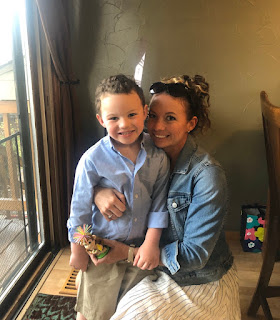Resumes are so important for getting a job. They summarize your entire life in just a couple sheets of paper, yet almost all jobs require one for you to get hired. There is no one right way to write a resume, but as my experience being an HR Rep for Anderson Atwood Consulting has shown me, there are patterns and simple tools you can use to make your resume stand out from the crowd and look more successful. The process of how to write a successful resume is hard, but honestly, it's worth your time to nail down.
Fact: The average time a hiring manager looks at a resume is 10 seconds! That's literally it, (and most of us look at our phones for a longer period of time) the only time you have to make an impression, except for in an interview. With COVID-19 making most job applications virtual, it becomes more difficult to stand out as you're not there in person. Don't despair, because there are many ways to stand out for a potential job, including having a great cover letter (I'll write about that next time), resume, skill set, and making sure to have a solid interview when you get to it. I wanted to share the patterns and tools I've seen as an HR rep that you can use to make yourself stand out more and make sure you know how to write a successful resume.
1. Be Brief
This may seem like common sense, but it's more difficult than you think. It's hard to summarize the months or even years of experience you may have had at a job, or volunteering, but showing you can properly and effectively summarize your work history shows education, intellectual thought, and the ability to remember facts, which are things any employer wants of their employees. Keep your sentences short, and use only one to two sentences per section. I usually do bullet points in my resumes, as they're to the point and easy to read. Again, time is against us as we only have ten seconds to impress. You want to use those ten seconds wisely and not have to worry about a hiring manager getting lost in your text. There are different ways to format a resume, and you can format it however you feel comfortable.
This again may seem self-explanatory, but in describing your previous experience, it's all-too-easy to use the same verbs for each bullet point. Words like "created," "established," or even "developed" or "assisted," get repetitive and boring. Wouldn't you stand out better if you "designed" something? or "boosted," sales? Those two verbs, along with others, can add color and variety to your resume, making you look like a more powerful candidate. It also shows that you're better read and, by extension, a better writer/communicator. Even if you're going into a job that requires no writing, for example, engineering, you still need to communicate effectively right? Think of your resume as not just your work history, but a preview of how you think and communicate with other people.
3. Only include relevant information
I can't tell you how many resumes I've looked at that were longer than they should have been. The descriptions may have been brief, but the work history included was not at all relevant to the job they were applying for. Make sure your work history reflects and suits the job you're applying to. If you're applying for a sales job, have previous positions about customer service, sales, or even leadership. Do not include jobs that have nothing to do with sales, such as working in a day-care. Keep your resume focused on the skills needed for the job, and center your work history around the jobs that have given you those skills.
I can't tell you how many resumes I've looked at that were longer than they should have been. The descriptions may have been brief, but the work history included was not at all relevant to the job they were applying for. Make sure your work history reflects and suits the job you're applying to. If you're applying for a sales job, have previous positions about customer service, sales, or even leadership. Do not include jobs that have nothing to do with sales, such as working in a day-care. Keep your resume focused on the skills needed for the job, and center your work history around the jobs that have given you those skills.
Like I said earlier, there's no one way to write a resume, but hopefully, these tips will help you to learn how to write a successful resume in no time. Let me know your thoughts and how you go about writing a successful resume.
Until next time,
Katie















